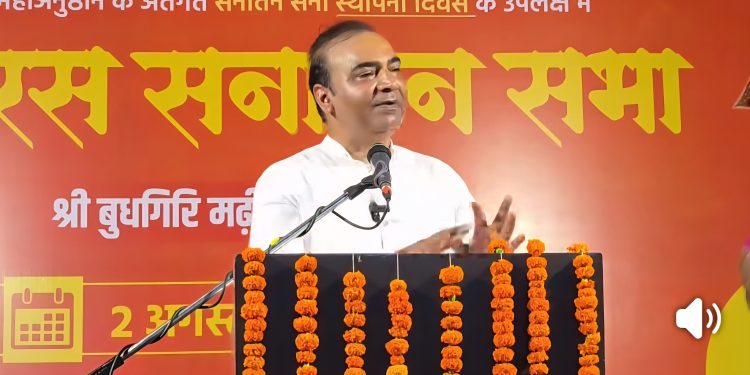Supreme Court lawyer and BJP leader Ashwini Kumar Upadhyay has filed a Public Interest Litigation (PIL) in the Supreme Court seeking the removal of nearly 65 lakh alleged fake voters from the electoral rolls and revocation of their citizenship.
Upadhyay is seeking a Special Intensive Revision (SIR) of electoral rolls nationwide before every Parliamentary, Assembly, and local body election.
Upadhyay alleges that foreign infiltrators have been fraudulently enrolled as voters in multiple states, altering electoral demographics in over 200 districts and 1,500 tehsils. His plea claims that illegal infiltration, religious conversions, and migration are politically exploited to distort election outcomes.
The petition states, “Demography is destiny, It is the constitutional duty of the Centre, States, and ECI to ensure that only genuine citizens vote, not foreigners.”
The petition argues that routine annual revisions under Section 14(1) of the Representation of the People Act are inadequate, urging the court to interpret Section 21(3) to allow special revisions in “extraordinary circumstances.” It warns of “Pakistani, Afghan, Bangladeshi, and Rohingya infiltrators” whose presence could dilute legitimate votes and undermine faith in elections.
Upadhyay alleges that infiltration is coordinated by syndicates providing forged documents, political protection, and illegal settlement, calling it a “transnational conspiracy” that threatens national security.
The matter was mentioned before a Bench of Justice Sudhanshu Dhulia and Justice Joymalya Bagchi, who asked Upadhyay to cure procedural defects before further listing.
Notably, TMC MP Mahua Moitra and others have also challenged the ECI’s June 24, 2025 order initiating a similar SIR in Bihar, arguing it could lead to large-scale disenfranchisement of genuine voters, especially from marginalised groups.
Upadhyay urged the court to direct the Election Commission of India to conduct a Special Intensive Revision of voter lists before every general, assembly, and municipal election. He alleged that forged Aadhaar cards, ration cards, and voter IDs were enabling fraudulent registrations, threatening the integrity of the electoral process.
The plea invokes Section 21(3) of the Representation of the People Act, 1950, and seeks strict verification measures as well as action against networks accused of manufacturing fake documents.
Upadhyay, known for filing frequent PILs, has often courted controversy for remarks against Muslims. In 2021, he was arrested after anti-Muslim slogans were raised during a protest he organised at Jantar Mantar. Civil rights groups have filed multiple complaints against him for speeches in Maharashtra and Rajasthan in 2023 and 2024, accusing him of spreading conspiracy theories like “love jihad” and “population jihad.”
Monitoring groups such as Citizens for Justice and Peace and Hindutva Watch have documented several of his speeches in which he described Muslim-majority areas and institutions such as madrasas as threats to national integrity. On his Facebook account, he has made several similar controversial remarks targeting Muslims. The Supreme Court has also cautioned him during hearings on his PILs, directing that defamatory content targeting minorities be removed.
The current petition is expected to be heard by the Supreme Court in the coming weeks.






